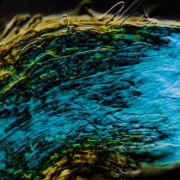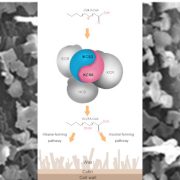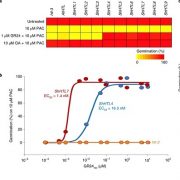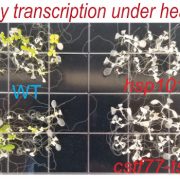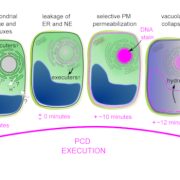The Cold Survival Game: RHOMBOID-LIKE PROTEASE11 and Arabidopsis’ FATTY ACID EXPORT PROTEIN1
John et al. reveal how degradation of the chloroplast protein FATTY ACID EXPORT PROTEIN1 by RHOMBOID-LIKE PROTEASE11 affects cold tolerance in Arabidopsis.
https://doi.org/10.1093/plcell/koae011
By Annalisa John (AJ) and Ekkehard Neuhaus (HEN) (RPTU Kaiserslautern, Germany)
Background: Plants are exposed to constantly changing environmental conditions and temperature differences, such as a cold snap, can occur relatively quickly. A key mechanism for acclimation to low temperatures is the reorganization of the protein and lipid composition of organellar membranes to keep the membranes fluid and protect cell integrity. For example, at cold temperatures, cryoprotective galactolipids are increasingly incorporated into membranes. These lipids are generated via the prokaryotic lipid biosynthesis pathway within the chloroplast. Accordingly, only small amounts of fatty acids are usually exported from the plastid at cold temperatures and used in the endoplasmic reticulum to synthesize phospholipids via the eukaryotic lipid-biosynthesis pathway.
Questions: Is the protein abundance of chloroplast FATTY-ACID EXPORT PROTEIN1 (FAX1) regulated by the envelope serine protease RHOMBOID-LIKE11 (RBL11) under cold growth conditions? Will unregulated fatty acid export from the plastid affect cold and frost tolerance in Arabidopsis (Arabidopsis thaliana)?
Findings: Several interaction experiments revealed that FAX1 is a potential substrate of the envelope protease RBL11, whereby FAX1 is degraded only under cold conditions. Investigation of Arabidopsis FAX1 overexpression lines and rbl11 mutants showed a similar phenotype on the molecular level. This includes strong reactive oxygen species production and a shift in lipid biosynthesis towards the eukaryotic pathway compared to wild-type plants. FAX1 overexpression and rbl11 loss-of-function mutants overproduce phospholipids compared to galactolipids due to unregulated fatty acid export, due to high FAX1 abundance, from the plastid. As consequence, FAX1 overexpression lines and rbl11 mutants exhibit clear cold and frost sensitivity. In summary, regulation of fatty acid export via FAX1 by the protease RBL11 is crucial for proper acclimation of Arabidopsis to cold growth conditions.
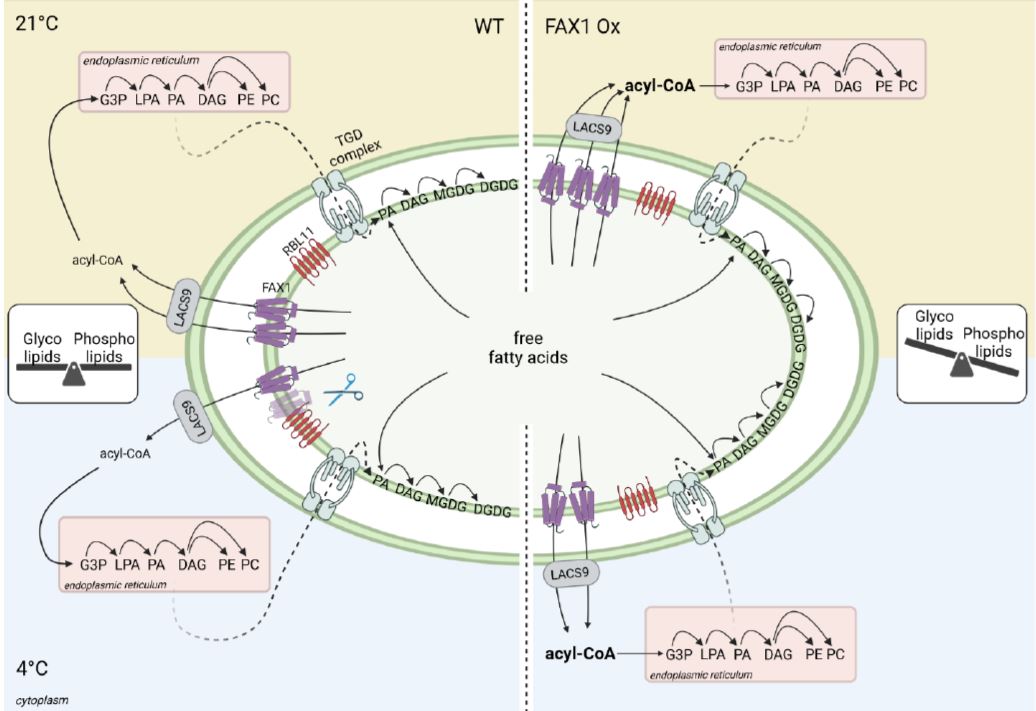
Next steps: Future studies are required to test whether RBL11 directly degrades FAX1. It will also be of interest to investigate whether post-translational modifications regulate the interaction of both proteins.
Reference:
Annalisa John, Moritz Krämer, Martin Lehmann, Hans-Henning Kunz, Fayezeh Aarabi, Saleh Alseekh, Alisdair Fernie, Frederik Sommer, Michael Schroda, David Zimmer, Timo Mühlhaus, Helga Peisker, Katharina Gutbrod, Peter Dörmann, Jens Neunzig, Katrin Philippar and H. Ekkehard Neuhaus (2024). Degradation of FATTY ACID EXPORT PROTEIN1 by RHOMBOID-LIKE PROTEASE11 contributes to cold tolerance in Arabidopsis. https://doi.org/10.1093/plcell/koae011


